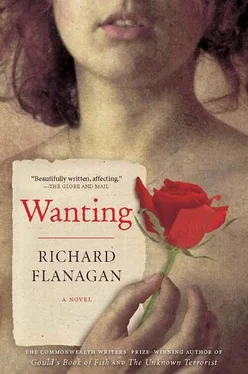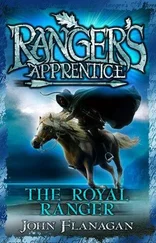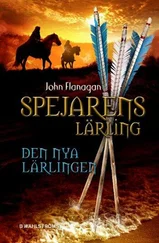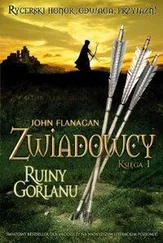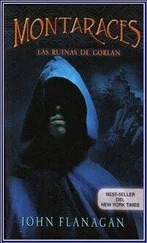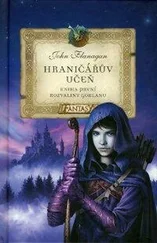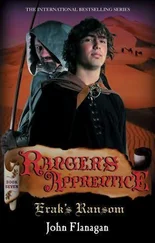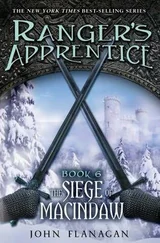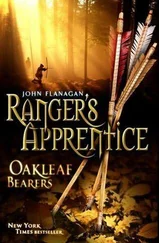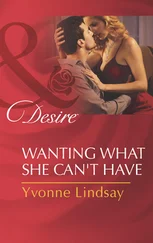Mathinna felt as if she only had this one moment on the deck of that boat to explain who she was—but who that was, no one would ever know, not even she, for they were all closing in around her. She tried to keep dancing but someone was yelling and something was wrong, so terribly wrong; she felt dizzy, the boat was spinning faster and faster, and she was no longer leaping and flying but falling and falling, and hands were coming to her, white hands, hands in awful gloves like rags used to dress the dying—and was she dying? She was unsure of everything. She wanted to ask but no words came, but she needed to know: was it Rowra?
Mathinna came out of a skipping slumber sensing a presence above her. She opened her eyes and was immediately terrified. Above her loomed the face of a giant black swan. She knew her life was over.
‘ Rowra ,’ Mathinna whispered.
After she collapsed, Crozier had carried the small child in his great arms down to his captain’s cabin, a room only fractionally longer and wider than the cot in which he laid her to rest, and in which she had now woken.
‘What?’ said Sir John.
The child said not a word more.
Far away, the ball continued, the band played on.
He was all things and all things were him. Looking down on Mathinna, her diminutive body, her exposed black ankles, her dirty little feet, the suggestive valley of her red dress between her thin legs, Sir John felt thrilled.
And after, was thrilled no more.
ON A COLD MORNING, during the third day of rehearsals at the Haymarket, halfway through a scene in which Ellen Ternan, playing Rose Ebsworth, has been embraced by her grieving friend Clara Burnham, played by her sister Maria, Ellen abruptly stepped out of character and her sister’s embrace, crying out:
‘Please, Maisy, careful , or I’ll end up wearing pigeon pie!’
It was the first moment of spontaneous performance Dickens had seen from Ellen Ternan, but it was also not part of the script. Though part of him was intrigued and amused, Dickens was weary and simply lost his temper.
‘Damn you, Miss Ternan!’ he said tersely, holding up the script as if it were holy writ. ‘We have ten days left—what are you doing?’
In answer, and not without hesitation, she reached inside her coat and produced a small glossy black bird. It oinked.
‘They are great mimics, sir,’ said Ellen Ternan, unsure of what else to say, holding the bird in her cupped hands as though it were some sort of offering.
‘She’s always collecting dying birds and trying to save them,’ said Maria. ‘She picked up this starling at the entrance of the Haymarket.’
‘Its wing seemed a bit broken, Mr Dickens,’ said Ellen Ternan. ‘And I thought I must keep him warm.’
‘A bit ?’ said Dickens. ‘Well, we must be grateful it is not a lot.’
He reached down into the now quiet ball of shiny fluff that she held before him.
‘I’ll have a starling,’ he said softly, retreating into recitation while pushing a finger first under one wing, then the other, slowly unfolding each in turn and inspecting the bird. ‘It shall be taught to speak nothing but “Mortimer”, and—’
Dickens looked up from the starling and for the first time looked into her eyes. He was startled. It was not their colour, which after he could not remember.
‘And,’ he repeated, losing his way, stumbling, ‘and…’
‘And give it to him, to keep his anger still in motion,’ said Ellen Ternan.
‘ Henry IV ,’ said Dickens, intrigued.
‘Hotspur,’ smiled Ellen Ternan, for whom the Bard was as familiar as bedbugs.
Dickens stared at her for a moment. Later he found the memory of that moment irreducible to words.
‘People forget Shakespeare was an actor first,’ he said finally, when, frightened by those eyes, he had dropped his gaze back to the bird in her hands. ‘And a writer only second. That is the secret of his genius. He had no sense of himself and existed only through his imitations of others.’
There, Dickens thought with an odd shock: I have given you the secret of myself. He stroked the bird, and he felt they both were paralysed with terror. He, who impressed countless thousands without effort, felt clumsy and awkward as he tried to make conversation with a young woman scarcely more than a child, whereas she felt emboldened.
‘An eagle for an emperor,’ said Ellen Ternan, continuing the game of quotation, ‘a kestrel for a knave, and—’ she paused; when Dickens lifted his eyes, for a second time she dared to look him directly in the face. ‘A starling,’ she smiled, ‘a mimic for a writer.’
He turned away, somewhat flustered. Spotting a small pine box that was being used as a prop, he picked it up, as much to rid himself of the nervous energy that was suddenly surging through him as for any other reason. He took a handkerchief out of his pocket and formed a nest with it in the box, then placed the injured starling in its crinkled folds.
That evening, as he rode to dinner in a carriage with Catherine, he put his hand high up on his wife’s skirted thigh. She turned and looked at him oddly, then pulled her leg away.
During what remained of the fortnight’s rehearsals, Dickens spent an increasing amount of time in the proximity of Ellen Ternan. To be alone in her company was more difficult, but he contrived moments when others were absent and he unexpectedly present, when by seeming accident he bumped into her. At such times she found him delightful. She found him kind, always helpful, ever merry, and she never wondered why he was always finding her.
He thought her funny and lively; her forceful character, which so clearly irritated her mother, charmed him. Her straightforward judgements and strongly held opinions, and her interests in books and theatre and politics, seemed liberating after Catherine’s professions of inescapable ignorance and stupidity and sullen silences. He saw that Ellen Ternan could also be childish, petulant and obstinate, that her feelings and ideas were sometimes shallow and foolish, but what irritated him in his wife delighted him in Ellen Ternan, and he excused that in which it was impossible for him to delight, for what did such trivialities matter? And not for a single moment did he think what his actions might mean—for, as long as he had no conscious intention, he was sure he could do no wrong.
Dickens’ world seemed charged. It was the play, he told his friends as he had convinced himself—it was charity, it was the opportunity to help others combined with the joy of raising the production to a far more elevated level than he had ever anticipated. And his friends marvelled at his rediscovered energy, at the amount of time and attention he gave every aspect of the resurrected production, and particularly at the care he was lavishing on rehearsals. When at the end of the first week’s rehearsal the starling vanished, presumably having gathered its strength and flown away, Dickens could not withhold the feeling that there was something liberating in the omen.
Yet he was enraged at the sheer lack of generosity his own wife showed towards the production.
‘Why waste all this time on something that was working perfectly well before?’ Catherine asked her husband one morning. She stood before him in his study with a vase of flowers. ‘Look at these,’ she said. ‘Begonias and dahlias and all these beautiful annuals for your desk.’ And when he didn’t look up, she said, her tone suddenly cold, ‘These Ternan women—if they are such good professionals, why do you need to be bothering rehearsing them so much?’
When Catherine stepped forward to place the vase down on the desk, her back, which had been bad since the birth of their second daughter, gave a sharp twinge. She stumbled and then dropped the vase, and flowers and water went spilling over a neat pile of writing.
Читать дальше
